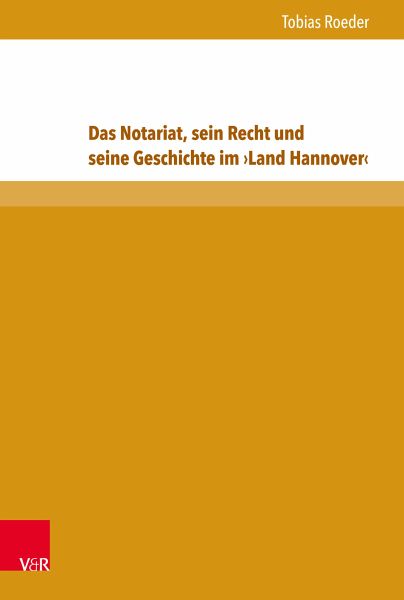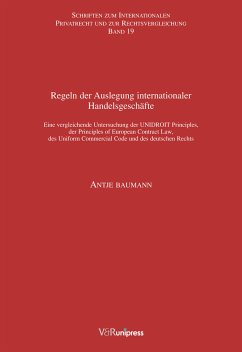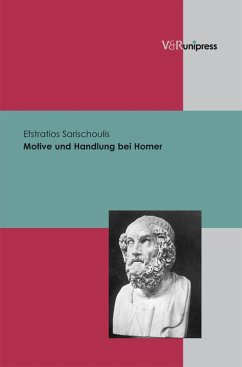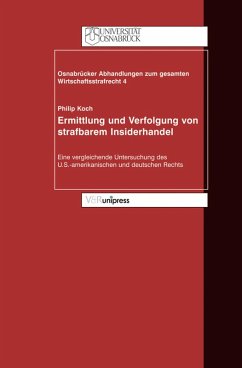
Das Notariat, sein Recht und seine Geschichte im >Land Hannover< (eBook, PDF)

PAYBACK Punkte
0 °P sammeln!
Very little research has been done on the notarial profession in its entirety in Lower Saxony to date. This goes for the history of those active in the profession and also for the history of the codification of notarial law. The present study seeks to fill this gap. After providing a general account of the origins of notarial activities and the local specific features of civic lawmaking in the Middle Ages, the author presents an analysis of the legal purposes of the Royal Hanoverian Notarial Ordinance of 1853 (HNO), the ruling of the Supreme Court of Appeal (OAG) in Celle of 1711 and other reg...
Very little research has been done on the notarial profession in its entirety in Lower Saxony to date. This goes for the history of those active in the profession and also for the history of the codification of notarial law. The present study seeks to fill this gap. After providing a general account of the origins of notarial activities and the local specific features of civic lawmaking in the Middle Ages, the author presents an analysis of the legal purposes of the Royal Hanoverian Notarial Ordinance of 1853 (HNO), the ruling of the Supreme Court of Appeal (OAG) in Celle of 1711 and other regional and local legal sources from various periods, placing particular emphasis on the political circumstances of the legislation and their effects on notarial practice. He thereby focuses especially on the Middle Ages and the early Modern period and the rivalry between notaries public and their freelance counterparts.One of the outstanding features of Hanoverian notarial legislation is above all the salient role of the political classes in the State of Hanover in the 18th and 19th centuries. As well as an account of the origins of the HNO, the study therefore also considers the developments in constitutional law in the first half of the 19th century which, according to the author, not least influenced the form and content of the the HNO as legislation for political control of the state by the notarial profession in times beset by repeatedly resurgent sovereign monocracy.Another focus of the study is the development of the Hanoverian notarial profession and its special areas of activity. These are analysed and evaluated on the basis of, inter alia, records and documents of various Hanoverian notaries from the 16th up until the 19th century, now held in the Lower Saxony state archives.
Dieser Download kann aus rechtlichen Gründen nur mit Rechnungsadresse in A, B, BG, CY, CZ, D, DK, EW, E, FIN, F, GR, H, IRL, I, LT, L, LR, M, NL, PL, P, R, S, SLO, SK ausgeliefert werden.













